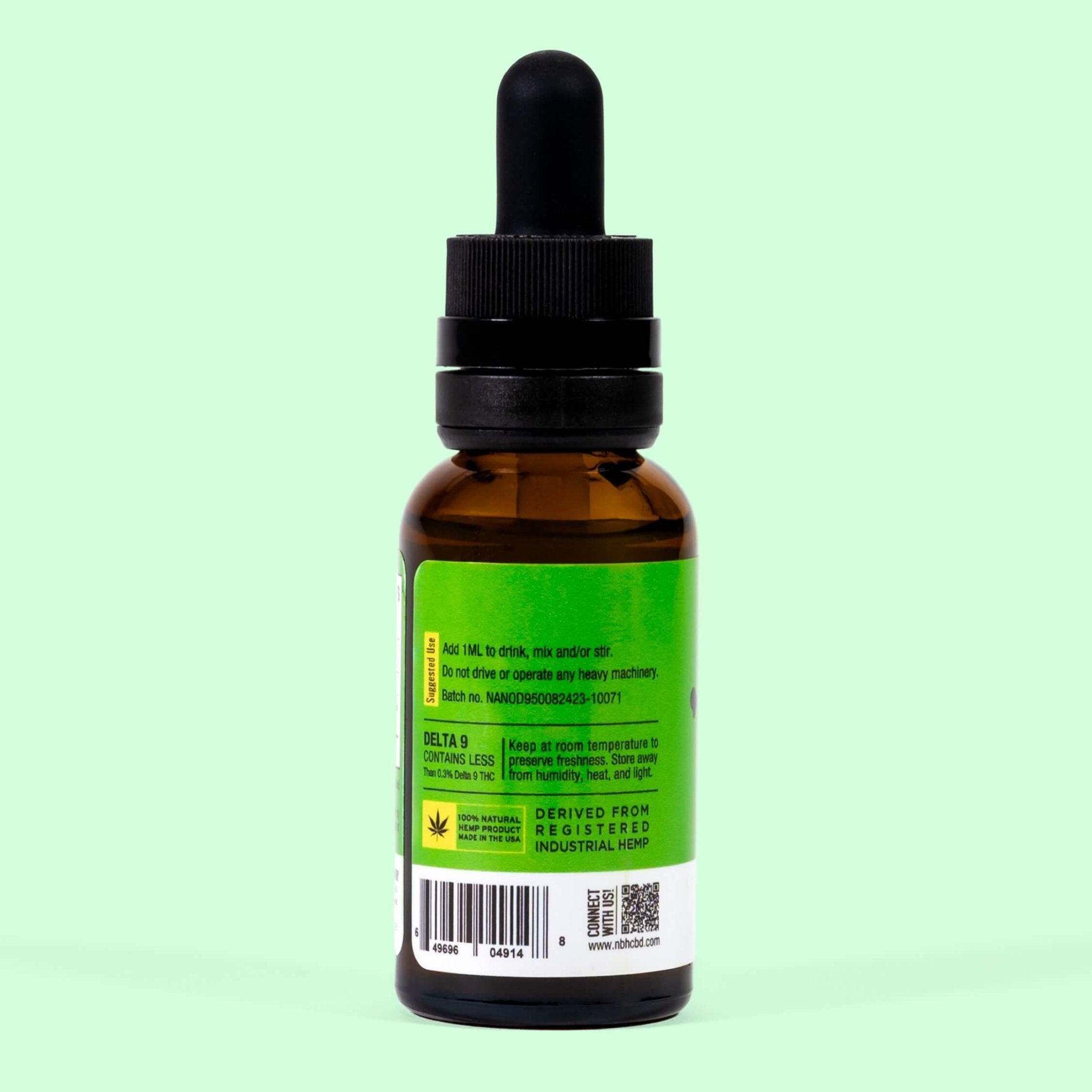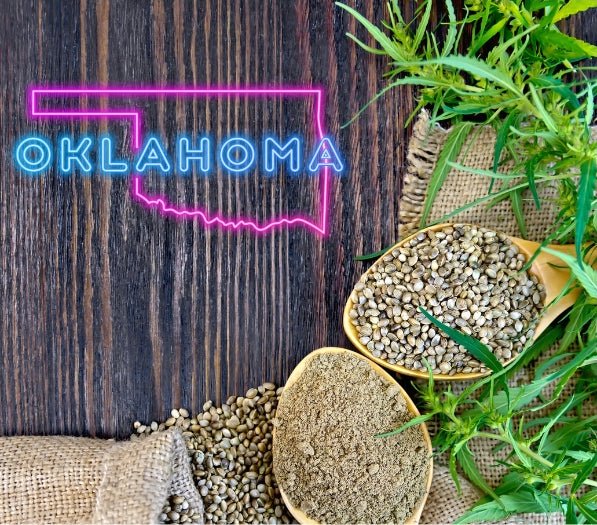Much of the argument for supporting a restriction or outright ban of hemp-derived cannabinoids centers on a legislative ‘loophole’ that legal experts say does not exist.

There is a legal narrative inserting itself into the hemp versus cannabis discussion surrounding an alleged loophole in the 2018 Farm Bill, which many in the corporate marijuana camp point to as the reason for the proliferation of Intoxicating Hemp Derivatives (IHDs) in the past few years.
According to this theory, the Farm Bill’s authors unwittingly enabled the legal production and sale of products containing hemp-derived cannabinoids when they removed hemp from the Controlled Substances Act (CSA) in 2018. In doing so, lawmakers opened the floodgates to a wide array of product offerings containing IHDs like delta-9 and delta-8 THC.
For opponents of IHDs, the current marketplace situation is the fault of uneducated and easily manipulated politicians who should’ve been more careful when crafting such impactful legal and economic legislation.
However, in the estimation of many legal scholars on both sides of the issue, there is no loophole. To these experts, Congress precisely knew what it was doing when legislators passed the massive, historic, and controversial agricultural spending measure.
In his recent five-piece series on the hemp/cannabis conflicts for Forbes Magazine, Robert Hoban details the legal, cultural, and economic issues surrounding the growing and potentially devastating clash between cannabis and hemp interests.
Through his exhaustive examination of the players, facts, and myths surrounding hemp and the economic fallout an all-out war would cause, Hoban attempts to separate propaganda from truth. Likewise, he also sheds insightful light on the true promise of hemp and all of its downstream uses.
The first item Hoban takes swift and decisive aim at in his breakdown of the issues driving the conflict is the notion of an “unwanted loophole” in the 2018 Farm Bill enabling the explosion within the IHD marketplace.
“In terms of the legal framework that has created this ‘market,’ let’s set the record straight – the legality of hemp-derived cannabinoids is no ‘loophole.’ As previously stated, a loophole is defined as ‘an ambiguity or omission in the text through which the intent of a statute, contract, or obligation may be evaded.’ Rather, Congress was very intentional in selecting its words,” Hoban writes.
"In terms of the legal framework that has created this ‘market,’ let’s set the record straight – the legality of hemp-derived cannabinoids is no ‘loophole.’ As previously stated, a loophole is defined as ‘an ambiguity or omission in the text through which the intent of a statute, contract, or obligation may be evaded.’ Rather, Congress was very intentional in selecting its words.”
- Robert Hoban, Forbes Magazine Cannabis/Hemp Contributor
The language of the Farm Bill is plain and very straightforward. It provides that the following downstream hemp derivatives are legal and no longer subject to CSA controls:
- all derivatives
- all extracts
- all cannabinoids
- all isomers
- all acids
- all salts
- all salts of isomers
Simply put, there is no loophole. This logical and sound reasoning is not just Hoban’s opinion. As detailed earlier in this series, several lawsuits filed in states like Arkansas, Texas, and Maryland by hemp companies seeking to challenge the legality of state laws severely restricting or banning IHDs have resulted in wins for the hemp industry. Much of the legal basis behind those victories centers on the rock-solid legal foundation presented by the intentional language of the 2018 Farm Bill.
What makes the animus building between the sister plants even more puzzling in the eyes of Hoban and other hemp/cannabis market experts is the fact that a thriving hemp sector only serves to benefit the legal cannabis market.
“I would posit that hemp is actually the ‘backbone’ of the global cannabis supply chain. Hemp contains the very same cannabinoids that we find in marijuana plants, but they are simply present in different ratios,” Hoban says.
"I would posit that hemp is actually the ‘backbone’ of the global cannabis supply chain. Hemp contains the very same cannabinoids that we find in marijuana plants, but they are simply present in different ratios.”
- Robert Hoban, Forbes Magazine Cannabis/Hemp Contributor
Hoban’s postulation is overwhelmingly affirmed by the recent comprehensive and revealing Whitney Economics 2023 National Cannabinoid Report. In his study, leading international global economist Beau Whitney found that the Total Addressable Market (TAM) for IHDs is $28.4 billion, ranging from $21.3 billion to $35.8 billion.
Whitney shares that “Much of this TAM has already been realized in terms of retail sales - $21.3 billion - and approximately $7.1 billion of demand is from states that have enacted prohibitions.” The Whitney report also discovered that the hemp industry provided an employment impact in the U.S., totaling $13.2 billion and over $1.5 billion in potential sales tax revenue. The study further concluded that demand for IHDs doesn’t evaporate when a state decides to ban IHDs. That prohibition only serves to make consumer safety a more pressing issue.
However, the need for peace and cooperation between cannabis and hemp operators is not only based on financial and legal reasons. The Brightfield Group’s 2023 report, entitled “The State of Delta-8 – Hemp Derived THC Update,” found that the IHD market has grown substantially in the past few years and that IHD consumers now represent nearly 10% of the population.
The report says, “The majority of THC users still prefer [marijuana]-only products, but a notable 20% are dual users, leveraging both [marijuana] and hemp-derived THC. This highlights a significant cross-utilization in the market, with hemp-derived THC gaining traction due to its broader availability in non-dispensary outlets like convenience and smoke shops.”
"The majority of THC users still prefer [marijuana]-only products, but a notable 20% are dual users, leveraging both [marijuana] and hemp-derived THC. This highlights a significant cross-utilization in the market, with hemp-derived THC gaining traction due to its broader availability in non-dispensary outlets like convenience and smoke shops.”
- Brightfield Group's "The State of Delta-8 – Hemp Derived THC Update"
In short, consumers like using both hemp and cannabis derivatives. And with cannabis still illegal in 26 states, IHDs provide the only source of relief for users in those states. Instead of fighting each other over market share and hemp’s legal right to exist alongside its sister plant, marijuana, Hoban and this author strongly encourage both sides to see the mutual benefits of cooperation and working together.
Hemp and cannabis are inextricably linked. By working together and getting past this current impasse, the two industries could help each other build one of the largest and most lucrative multi-faceted industries in American History.








































